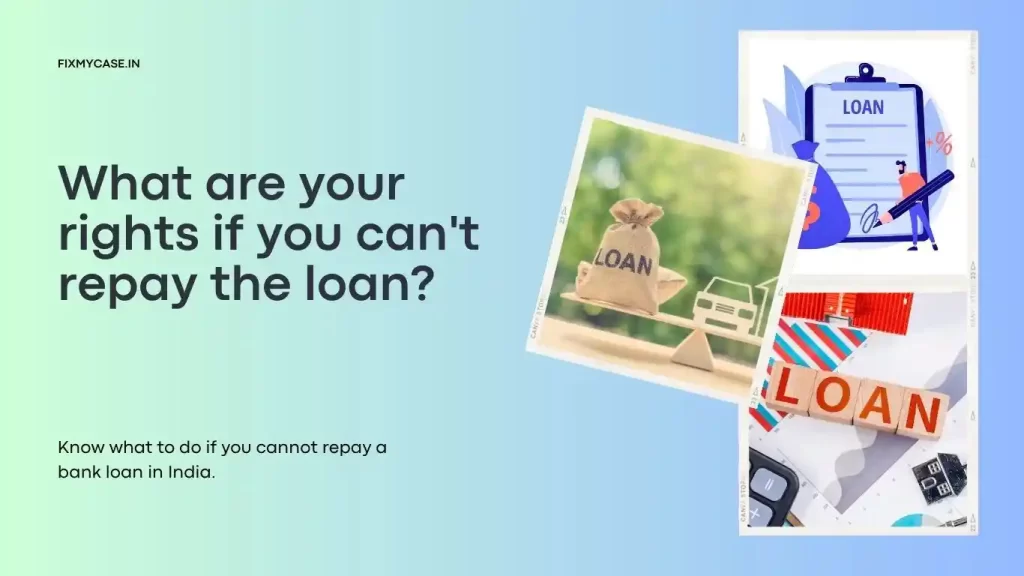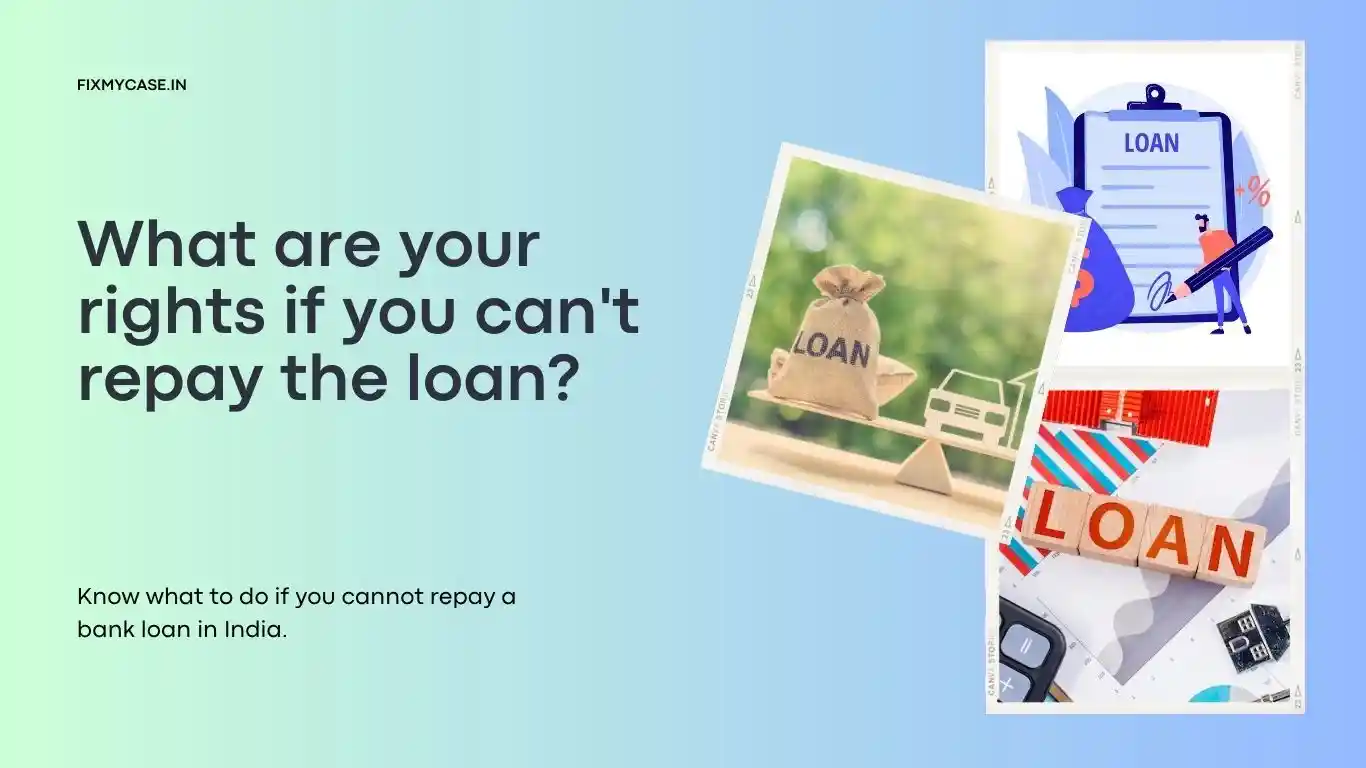What are your rights if you can’t repay the loan?
Loan introduction.
In today’s modern and urban lifestyle, one cannot handle all of one’s financial needs without resorting to loans.
Whether you want to buy a car, buy your dream home, start a new business venture or finance your personal expenses – loans have become an inevitable part of modern life.
Some loans like home loans come with tax benefits, making them a preferred option for everyone. However, life is full of surprises. There are many times when things don’t go as planned. You may lose your job, get a serious illness, or find it difficult to keep up with your loan repayments.
Regardless of your current financial situation, it pays to be aware of the consequences of defaulting on your loan.
What happens if you can’t repay your loan? Do you have any rights as a defaulter or are you at the mercy of the lender?
This article helps you find the answers to these questions and prepare yourself for worst-case scenarios.

Rights of defaulters.
Let’s clarify some basic things you need to know :
Bank loan default is not a criminal offense in India unless the courts find that there is a fraudulent intent.
The court recognizes that defaulters need protection as there may be a genuine reason for not being able to pay. And civil courts in India give due time to genuine, legitimate causes.
Non-repayment of debt is a civil offense in India. Criminal charges cannot be brought against a defaulter. This means that the police cannot arrest you for not repaying the loan.
Note, however, that these provisions apply only to persons with genuine reasons and not to willful defaulters, fraudsters, fugitives and law-abiding persons.
Know what happens if you still default on your loan repayments.
What happens when you can’t repay the loan?
Generally, if you miss some EMIs, the lender starts the recovery process after giving you repeated notices. In case of secured loans like home loans, two-wheeler loans and car loans, the bank takes over the assets as per surface (securitization and restructuring of financial assets and enforcement of security interests). However the bank cannot initiate the repossession process without giving you adequate notice.
What are the rights of defaulters:
- Right to Adequate Notice.
When your loan repayments are delayed for more than 90 days, your bank account is marked as NPA – Non-Performing Asset. In such cases, the lender issues a 60-day notice to the borrower. If the borrower is unable to repay the outstanding EMIs within the notice period, the bank has the power to sell the property.
In this scenario also, before auctioning the property, the bank must again issue a public notice for 30 days.
- Right to fair valuation of assets.
Before selling the property, banks have to issue a public notice, ie – the fair market value of the property, the reserve price and other details of the auction like venue, date and time.
The bank appoints appraisers who determine the sale price of the property. If the borrower feels that the property is undervalued, he/she can contest the auction. The defaulter can find another buyer and introduce the buyer to the lender.
- Right to reserve of auction proceeds.
Once the lender sells the property through an auction, the lender can claim the excess amount (if any) after the loan is repaid. By law, the lender can only collect the outstanding amount and return the excess amount to the borrower.
- Right to humane treatment.
It is common practice for lenders to hire recovery agents to force defaulters to pay the outstanding amount. However, banks should ensure that loan recovery agents behave humanely. Recovery agents cannot cross the line by harassing borrowers.
Third party recovery agents can only meet borrowers at a place and time convenient for them. Those loan agents should schedule to meet the borrower only between 7 am to 7 pm and recovery agents should adhere to civil procedures and not violate disciplinary rules.
As a defaulter, if you feel that the recovery agent is physically or mentally harassing you or your family members, you can report the problem to your lender or the bank resolution officer.
What to do if you can’t repay a bank loan in India?
- Restructure your debt.
If you are unable to repay your loan due to a temporary problem like sudden illness or job loss, you can approach your bank and explain the situation. Submit relevant documents that you have been paying your EMIs regularly and have repaid other loans you have taken in the past. Your lender may understand the situation and reschedule your loan. You can resume paying your EMIs once your finances are back to normal.
- Reduce EMI.
If your income has decreased or your other expenses have increased, you can approach your lender to reduce your debt burden and reduce your monthly EMIs.
- Monetize your investments.
If you have trouble repaying your loan due to cash flow problems, you can withdraw from other investments. Use your savings in mutual funds, bank fixed deposits and other stocks to repay your loan.
- Sell the property and deal with the situation.
For example, if you have a car loan and can’t pay it off, you may have to sell the car and switch to a less expensive model or even learn to live without a car for a while.
Conclusion.
Make sure you research your financial situation before you apply for a loan.
Loans are easily available today. However, just because a lender is willing to give you a loan doesn’t mean you have to take out the loan. You should weigh the pros and cons of the loan before taking it. Non-repayment of loans has serious negative consequences that not only damage your financial condition but also your daily life.
Make sure to apply for low interest loans that are easy to repay. Above all, carefully evaluate your financial situation and take a loan only if you are confident that you can repay the loan easily.

